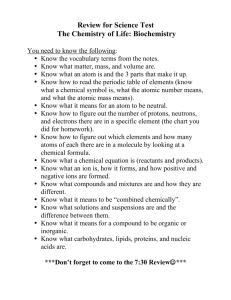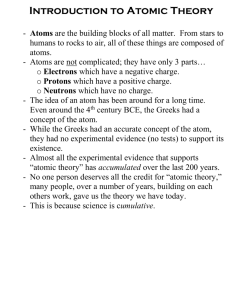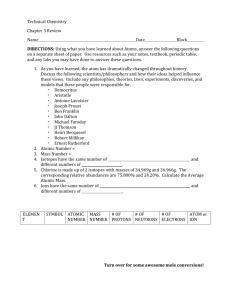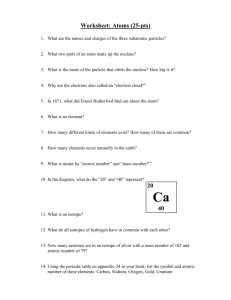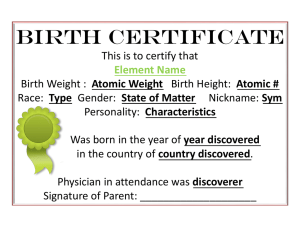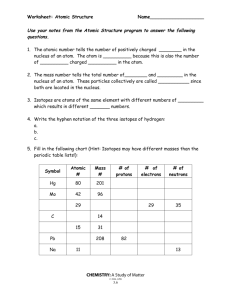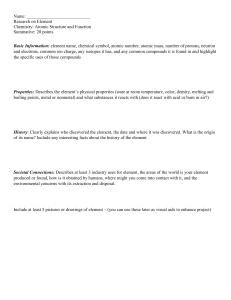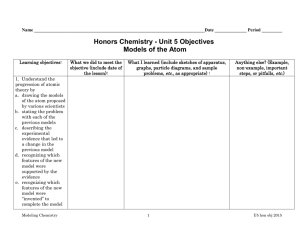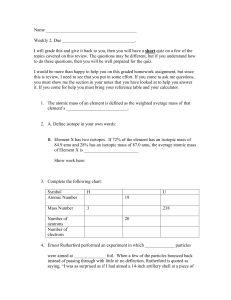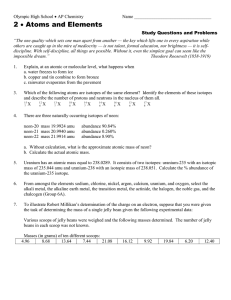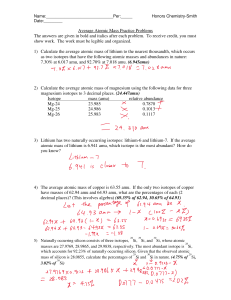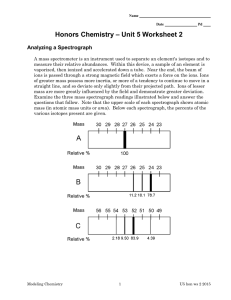Atomic History and Structure Test Objective
advertisement
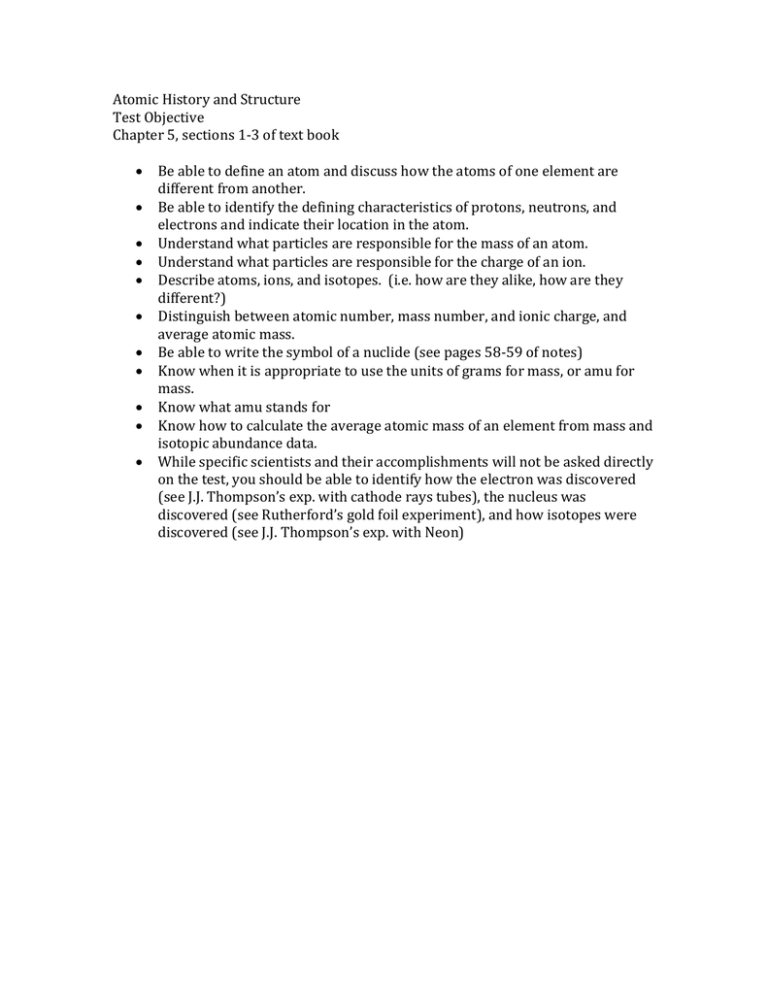
Atomic History and Structure Test Objective Chapter 5, sections 1-3 of text book Be able to define an atom and discuss how the atoms of one element are different from another. Be able to identify the defining characteristics of protons, neutrons, and electrons and indicate their location in the atom. Understand what particles are responsible for the mass of an atom. Understand what particles are responsible for the charge of an ion. Describe atoms, ions, and isotopes. (i.e. how are they alike, how are they different?) Distinguish between atomic number, mass number, and ionic charge, and average atomic mass. Be able to write the symbol of a nuclide (see pages 58-59 of notes) Know when it is appropriate to use the units of grams for mass, or amu for mass. Know what amu stands for Know how to calculate the average atomic mass of an element from mass and isotopic abundance data. While specific scientists and their accomplishments will not be asked directly on the test, you should be able to identify how the electron was discovered (see J.J. Thompson’s exp. with cathode rays tubes), the nucleus was discovered (see Rutherford’s gold foil experiment), and how isotopes were discovered (see J.J. Thompson’s exp. with Neon)
